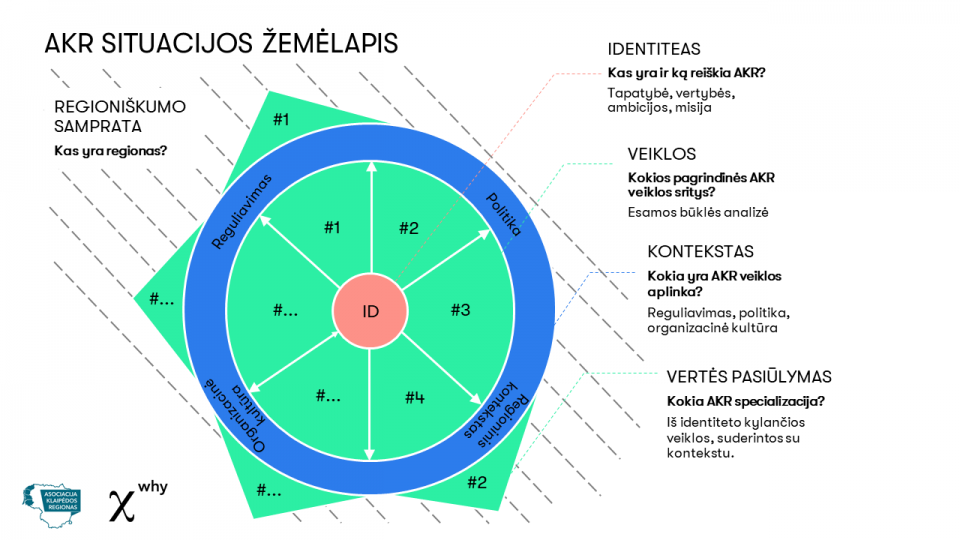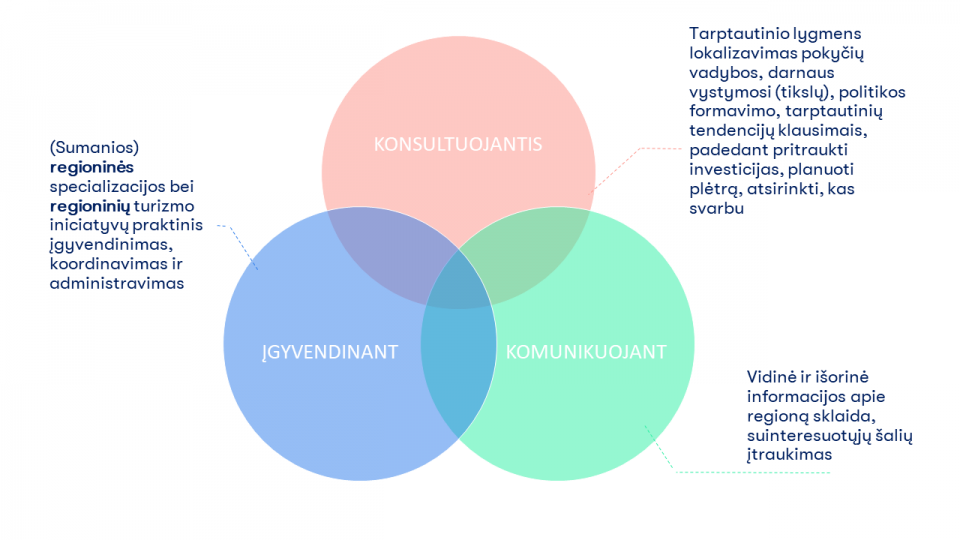Purpose and action plan identification
| Numbers | |
| 4.3 | billion euros of GDP |
| 1.2 | billion euros of FDI |
| 765 | thousand turists |
Association Klaipeda Region (AKR) is the leading regional not-for-profit organization nationwide. It has been shaping the seaside area by encouraging collaboration between municipalities and managing international projects. Their impact is recognized internally and externally. Nevertheless, the association wanted to tailor their activities to maximize the effect.
Mapping the activities AKR foresees or is involved has demonstrated the need to narrow them down. It was too much for a small team to take care of. The other issue was direct dependence on multiple stakeholders. Balancing a variety of needs was time-consuming. These were organizational problems decreasing the overall efficiency.
Methods and theories from the human sciences enable researchers to put oneself into the shoes of a particular organization in a concrete situation. It is possible to understand that company from its perspective: the role in consumers’ lives, positioning in the industry, the impact to the ecosystem, internal good and bad practises.
Having the organization's perspective and overlooking the principles guiding changes in the world means leveraging inside and outside knowledge and practices.
This positioning is generally defined by five key areas to look at:
/ the organization as a goal-oriented tribe;
/ the people as biologically and socially wired creatures;
/ the tools as technologies defining processes;
/ the domain as ecosystem of the market / stakeholders;
/ the irregularities as unique practises.

Our team conducted multiple in-depth interviews with AKR representatives to find out about their five elements. Besides lack of resources the organization managed to perform at the very high level. Nevertheless, the impact was not appreciated enough by the stakeholders. The problem was unusual as a solution was hidden in structuring a model where AKR would act out their identity while stakeholders would recognise the value created.
The complexity of the situation was deconstructed in two parts:
- what is AKR identity and where does the actual potential lie;
- why do stakeholders struggle in recognizing the value.
After researching the stakeholders and industry behavior, our team indicated the need to transform existing perspective. The status quo structure allowed stakeholders to be rewarded without any actions directed at growth and support towards AKR tasks. Their long standing model decreased the necessity to act in order to be defined as developing organizations. We advised to start the change by redefining linguistics from noun-oriented to verb-oriented and providing inclusive workshops to facilitate the shift. Stakeholders have to be evaluated by their input into the overall growth of the domain, not only individual development. Otherwise their participation in the association has to be put to a question. There should not be any a priori member status in association.
As for AKR our team used mixed sociological methods to arrive at core competencies and services that correspond with the abovementioned stakeholders behavior change. AKR has its value in bringing various parties together regionally, nationally and internationally. It plays a vital role in creating and facilitating the dialogue between stakeholders, stakeholders and important topics, stakeholders and global trends.
Focusing on being the platform for stakeholders to connect, share and develop means executing the clear potential the organization has.

When stakeholders act out their duty to be active members in working towards individual and communal goals, they create the means to sustainable development and resilient growth. When AKR focuses on being the best platform for stakeholders to act out their potential those means create value. This transformation enables AKR to shift their behavior into purpose-driven work and stakeholders to bring welfare to their region.